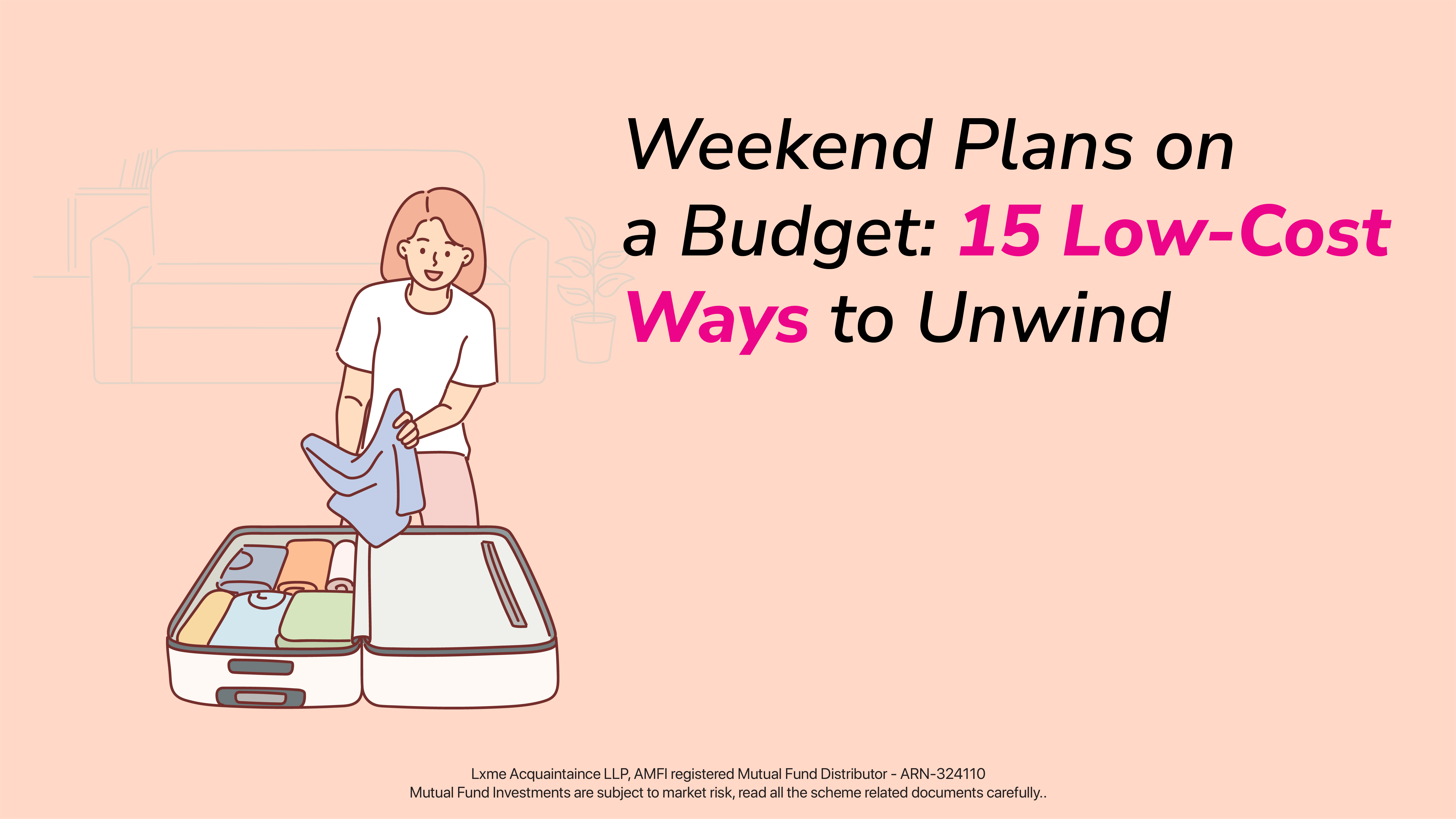There’s a quiet shift that happens when your salary slips into that “comfortable” range. You’re no longer checking your bank balance every other day, rent doesn’t eat your soul anymore, and those end-of-the-month Maggi dinners feel like a thing of the past. It feels good, right? But this is exactly when lifestyle inflation sneaks in—when you miss out on saving money as income grows.
And as women, we know the pressure is layered. From “treat yourself, you deserve it” messages on Insta to the quiet guilt of not buying your parents that new fridge yet—it’s easy to slip into a cycle of spending more just because you’re earning more. But money that isn’t managed well doesn’t feel like freedom. It feels like running on a treadmill, always moving but never really reaching anywhere.
The good news? You don’t have to give up celebrating your success. You just need to do it mindfully. Tools like a digital gullak make saving effortless, while beginner-friendly ways to invest money online help you grow your wealth alongside your lifestyle. And if you want to take full control, building financial literacy for women can give you the clarity to upgrade your life without falling into the lifestyle inflation trap.
Why Lifestyle Inflation Feels So Tempting
When you finally start earning more, it’s natural to want better. A slightly bigger apartment, a cab instead of the local, Zara instead of H&M, weekly brunches that aren’t followed by guilt. These changes don’t seem like much, but added together, they can quietly swallow your raise whole.
And honestly, as women, we’re often told that spending is our form of empowerment. “Buy the lipstick, book the spa, get the dress—it’s self-care.” But true empowerment is mastering mindful spending habits, not a drawer of impulse buys.
Small Shifts That Protect Your Bigger Dreams
Here are a few woman-to-woman budgeting tips for higher income that can help:
1. Anchor Before You Upgrade
Each time your salary increases, pause. Don’t rush to celebrate with bigger bills. Instead, plug your numbers into Lxme’s financial calculators. They’ll give you clarity on how much you can invest versus spend without feeling restricted. Think of it as your “reality check” before you swipe.
2. Say Yes to Investments Before Indulgences
Start small, even with ₹100. Lxme’s ₹100 investment plan is proof that building wealth isn’t about the amount, but the consistency. It’s a reminder that your money deserves to work for you, not just disappear into Friday night sushi.
3. Test Wants With the 30-Day Rule
Saw a designer bag you “need”? Wait 30 days. If it still excites you and fits your budget after planning, go for it. More often than not, the hype fades. This one habit can save you from endless “what was I thinking” purchases.
4. Make Savings a Game
Money doesn’t always have to feel heavy. Try the Lxme Savings Challenge, where you save small daily amounts in fun ways (₹10 for every coffee skipped, ₹50 for a walk instead of a cab). It feels playful, but adds up faster than you’d think.
5. Upgrade with Intention
Mindful spending habits aren’t about denying yourself. It’s about asking—“Does this actually make my life better, or just look good for the gram?” Upgrade things that give you daily peace: a mattress, a good blender, maybe therapy. That feels better than yet another dress that’ll sit in your closet.
The Emotional Side of Spending
Lifestyle inflation isn’t always about greed—it’s often about validation. A new outfit before every dinner, ordering food instead of cooking, luxury skincare because “I deserve it.” These are emotional spends, not financial ones.
The real flex? Saving money as income grows by having an emergency fund, or seeing your SIPs grow. It’s that deep exhale when you realise your money isn’t just surviving month-to-month, but actually growing.
And this is where Lxme’s FSQ for beginners helps—take the test and you’ll know exactly how ready you are to start investing, and what plan works for you. It’s like having a financial bestie give you a customised roadmap.
Celebrating Without Compromising
Let’s be real. Completely avoiding lifestyle upgrades is unrealistic. You should celebrate your growth. A raise is hard-earned, and buying yourself that special something feels good. But balance it by knowing how to manage money after a raise.
Here’s a simple thumb rule for managing money after a raise: increase your savings percentage before you increase your spends. That way, your money grows with your life, instead of shrinking behind your new habits.
From “I Can Afford It” to “I’m Growing It”
Money management after a raise isn’t about saying no—it’s about saying yes differently. Instead of “I can afford it,” shift to “I’m growing it.” Mastering mindful spending habits gives you the benefit of seeing spending as a choice, not a reflex.
When you’re the woman who buys smartly, invests consistently, and still enjoys her cappuccino—people notice. But more importantly, you notice. That’s the kind of confidence no luxury purchase can match.
A Gentle Note to My Women Readers
We’re all chasing different versions of success. For some, it’s a luxury handbag. For others, it’s a stress-free retirement plan. There’s no wrong dream. But money is the thread that makes every dream possible.
So, as your income grows, promise yourself this: you’ll give your future as much attention as your present. Celebrate, spend, enjoy—but not at the cost of tomorrow’s freedom.
And if you’re wondering where to start, open the Lxme app tonight. Try the calculators, play the savings challenge, or even just start with ₹100. You’ll be surprised how light money can feel when it’s working for you, not against you.
FAQs
What is lifestyle inflation, and why is it harmful?
Lifestyle inflation is when your expenses rise in proportion to your income—so even though you’re earning more, you’re not saving more. It’s harmful because it prevents you from building long-term wealth and financial security.
What are small, mindful upgrades that feel rewarding but not wasteful?
Think experiences or essentials that genuinely improve your quality of life. A cooking class, better work shoes, or investing in therapy sessions. These enrich your daily living without creating financial strain
Is it okay to upgrade my lifestyle at all?
Absolutely. The goal isn’t to deprive yourself but to balance. Upgrade in areas that give lasting value, while still prioritising savings and investments so your future self benefits too.
Further read:












